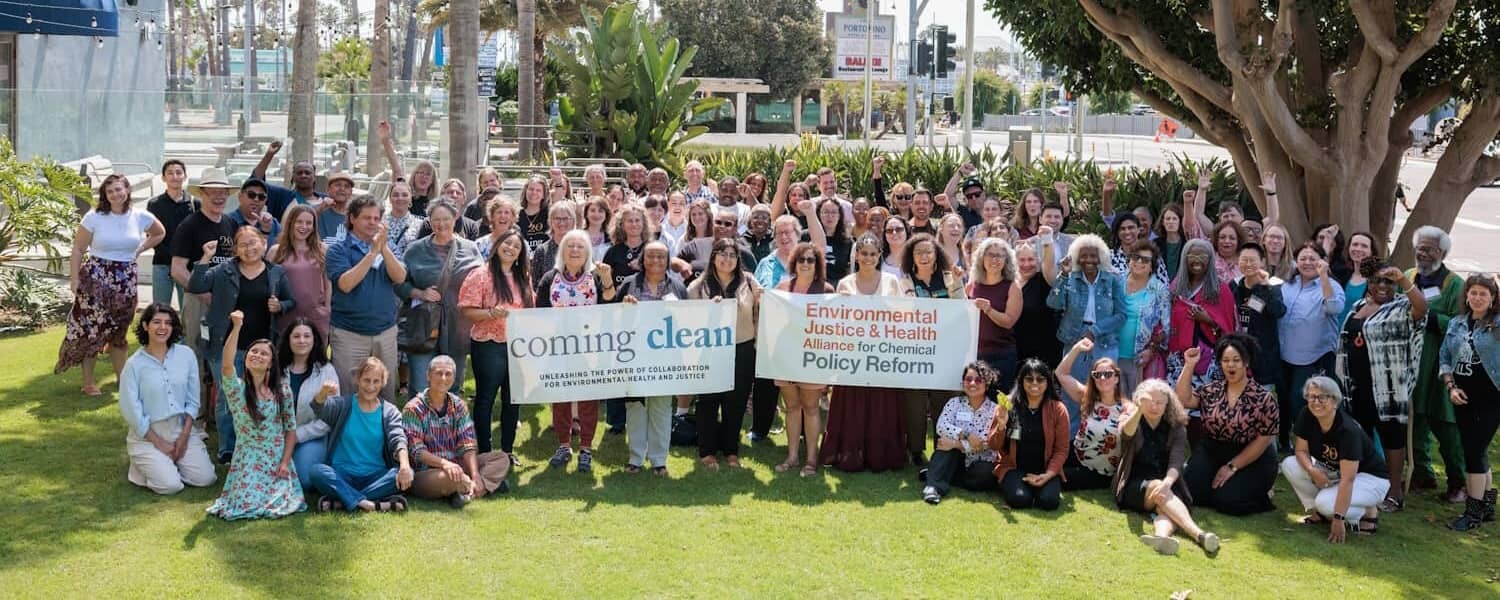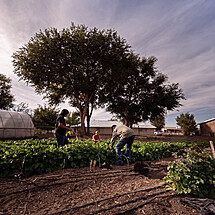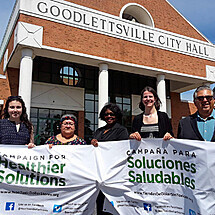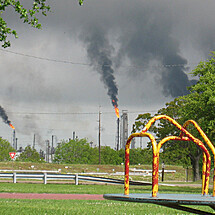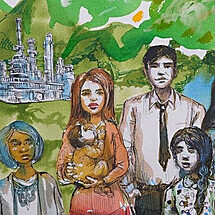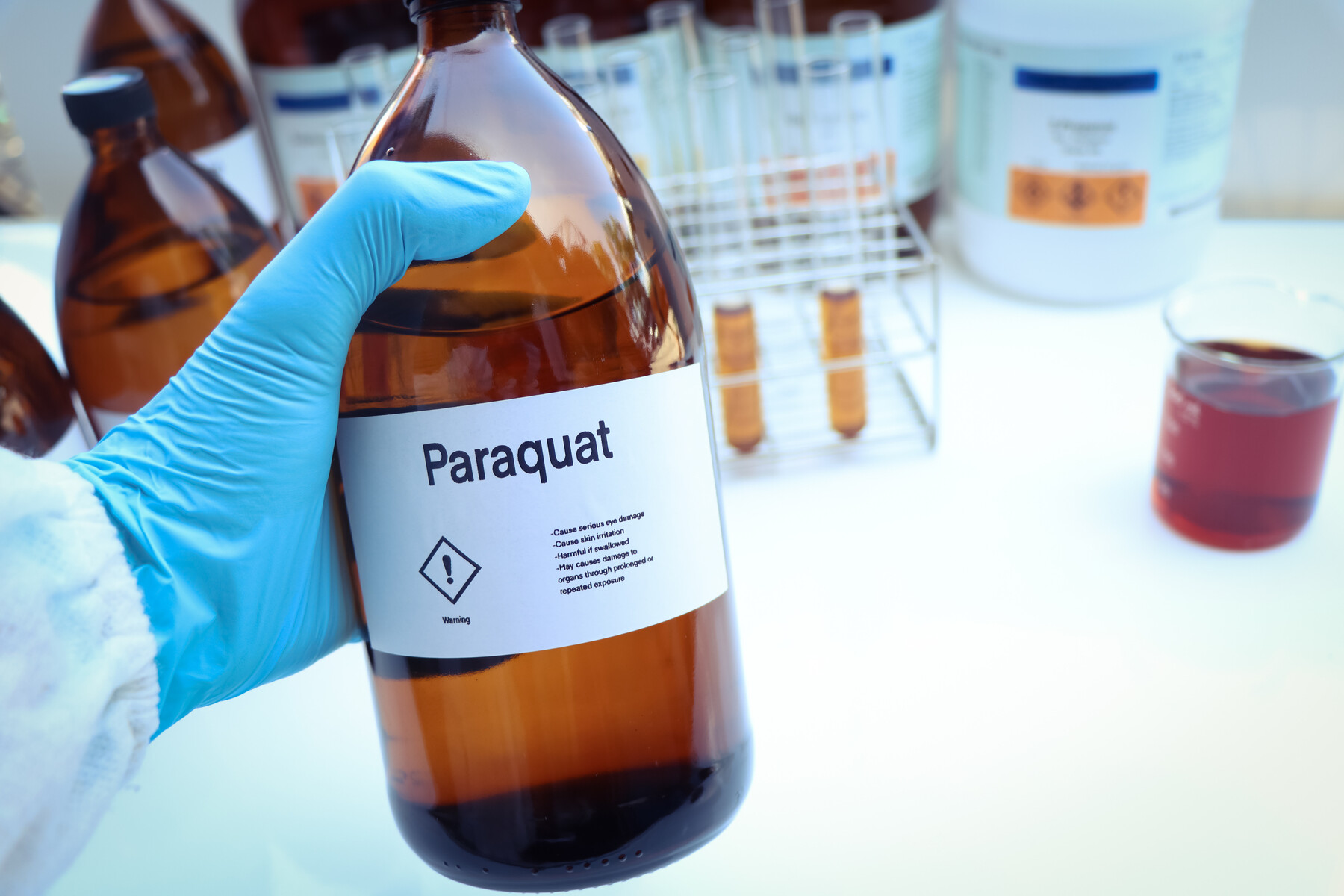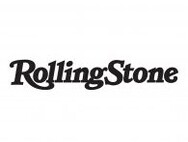Environmental Justice Health Alliance for Chemical Policy Reform
Coming Clean is a nonprofit environmental health collaborative working to transform the chemical industry so it is no longer a source of harm, and to secure systemic changes that allow a safe chemical and clean energy economy to flourish. Our members are organizations and technical experts — including grassroots activists, community leaders, scientists, health professionals, business leaders, lawyers, and farmworker advocates — committed to principled collaboration to advance a nontoxic, sustainable, and just world for all. Learn more
Coming Clean and the Environmental Justice Health Alliance for Chemical Policy Reform (EJHA) have worked in strategic partnerships for over 20 years. EJHA is a network of grassroots organizers from communities that are disproportionately impacted by toxic chemicals from legacy contaminations, ongoing exposure to polluting facilities, and health-harming chemicals in household products. Visit their website to learn more
-
SAFE FIELDS & FOOD
Protecting farmworkers from harmful chemicals and supporting sustainable local food systems.
Learn More -
SAFE PRODUCTS & STORES
Defending customers and our families from toxic chemicals in products.
Learn More -
SAFE CHEMICALS & FACILITIES
Protecting fenceline communities and facility workers from chemical disasters and toxic chemical exposure.
Learn More
-
LIFE AT THE FENCELINE
Watch the video: Roughly 40% of the population live within 3 miles of chemical facilities that could leak, spill, or explode.
Learn More -
THE PESTICIDE MAPPING PROJECT
A new multimedia series illustrates the health and climate harms of pesticides across their toxic lifecycle from fossil fuels to farms.
Learn More -
PREVENTING CHEMICAL DISASTERS
Watch the video: We're calling on the EPA to strengthen the rules for hazardous facilities.
Learn More
October 21, 2025
Los EE. UU. importan un herbicida tóxico atado al mal de Parkinson de países que prohíben su uso.
Un nuevo informe revela que los EE. UU. importan decenas de millones de toneladas de paraquat anualmente de China y el Reino Unido, ambos países que han prohibido el uso del plaguicida debido a preocupaciones por el riesgo a la salud y seguridad. Récords comerciales muestran que las importaciones estadounidenses de paraquat han aumentado esta década, aún cuando más de 70 países alrededor del mundo prohíben su uso. La exposición al paraquat se ha atado al mal de Parkinson, cáncer de la tiroide, daño pulmonar y otras condiciones de salud serias. El informe incluye testimonios de campesinos que probablemente fueron expuestos al paraquat en granjas estadounidenses y quienes luego desarrollaron quemazón debilitante de la piel, el mal de Parkinson y daño pulmonar. “Hasta recientemente, no sabía que mi papá probablemente adquirió el mal de Parkinson por sus años de trabajo en los campos de algodón, donde probablemente se usaba el paraquat,” dijo Mirna, miembro de la Alianza Nacional de Campesinas, cuyo padre era campesino en California y falleció por complicaciones del mal de Parkinson. “El gobierno tiene que reconocer el impacto de usar estos químicos porque afectan el ambiente y la salud de nuestra comunidad.”
Read MoreOctober 21, 2025
U.S. imports a toxic herbicide linked to Parkinson’s disease from countries that ban its use
A new report reveals that the U.S. imports tens of millions of tons of paraquat a year from China and the United Kingdom, countries that have both banned the pesticide due to health and safety concerns. Trade records show that U.S. paraquat imports have increased this decade, even as over 70 countries worldwide prohibit its use. Paraquat exposure has been linked to Parkinson’s disease, thyroid cancer, lung damage, and other serious health conditions. “Corporate greed and weak U.S. pesticide regulations are driving a health crisis for farmworkers, farmers and rural communities. Foreign-owned agrochemical companies are profiting while our essential farming communities suffer,” said Judy Robinson, Executive Director of Coming Clean.
Read MoreOctober 21, 2025
Paraquat imports climb despite concerns about health impacts
The US has been importing increasing amounts of paraquat, a pesticide widely used in farming that is linked to Parkinson’s disease, even as other countries have banned the chemical amid growing concerns about risks to human and environmental health, according to the findings of a new report. The report cites multiple Chinese factories as supplying paraquat to the US in recent years but singles out Sinochem Holdings, a Chinese government-owned company and parent to paraquat maker Syngenta, as among the key suppliers by way of a Syngenta manufacturing facility in central England. Sales in the US are “helping to prop up demand for a toxic product with a shrinking global market,” the report states. “I hope this research shows that giant, foreign-owned companies are the ones profiting from weak US pesticide regulations,” said Deidre Nelms, spokeswoman for Coming Clean and author of Tuesday’s report.“These companies can’t be trusted to solve the health and environmental problems they had a hand in creating in the first place,” she said. “Farming without pesticides is the only viable way to protect the health of the people who grow and harvest our food.”
Read MoreOctober 14, 2025
We're hiring an EJHA Administrative Associate
Coming Clean is seeking part-time, short-term administrative support for the Environmental Justice Health Alliance for Chemical Policy Reform (EJHA). The EJHA Administrative Associate will report to, and take direction from the EJHA National Organizer.
Read MoreOctober 9, 2025
Trump Is Using the Shutdown to Supercharge His War on Equity
As the federal government shutdown stretches into its second week, President Donald Trump is targeting nearly $30 billion in cuts to federal funding almost exclusively to Democratic states and cities. The impact of the cuts to public transit, energy projects, and fundamental civil rights programs could carry far-reaching harms across the nation and the economy. The cuts are the next step in the implementation of executive orders issued by Trump that strive to eradicate policies that advance racial and gender equity, tackle the climate crisis, and threaten the fossil fuel industry. "When the Biden-Harris administration came in, they did not just create plans in a vacuum, they went and listened to people in the community” to learn what projects were needed, “and financing flowed from those discussions,” Michele Roberts of the Environmental Justice Health Alliance. The programs included projects to address historic and ongoing environmental racism and injustices, and the disproportionate health and economic burdens in Black and Brown communities that followed.
Coming Clean is a nonprofit collaborative of environmental health and environmental justice experts working to reform the chemical and energy industries so they are no longer a source of harm. We coordinate hundreds of organizations and issue experts—including grassroots activists, community leaders, scientists and researchers, business leaders, lawyers, and advocates working to reform the chemical and energy industries. We envision a future where no one’s health is sacrificed by toxic chemical use or energy generation. Guided by the Louisville Charter, Jemez Principles of Democratic Organizing, and the Principles of Environmental Justice, we are winning campaigns for a healthy, just, and sustainable society by growing a stronger and more connected movement.


